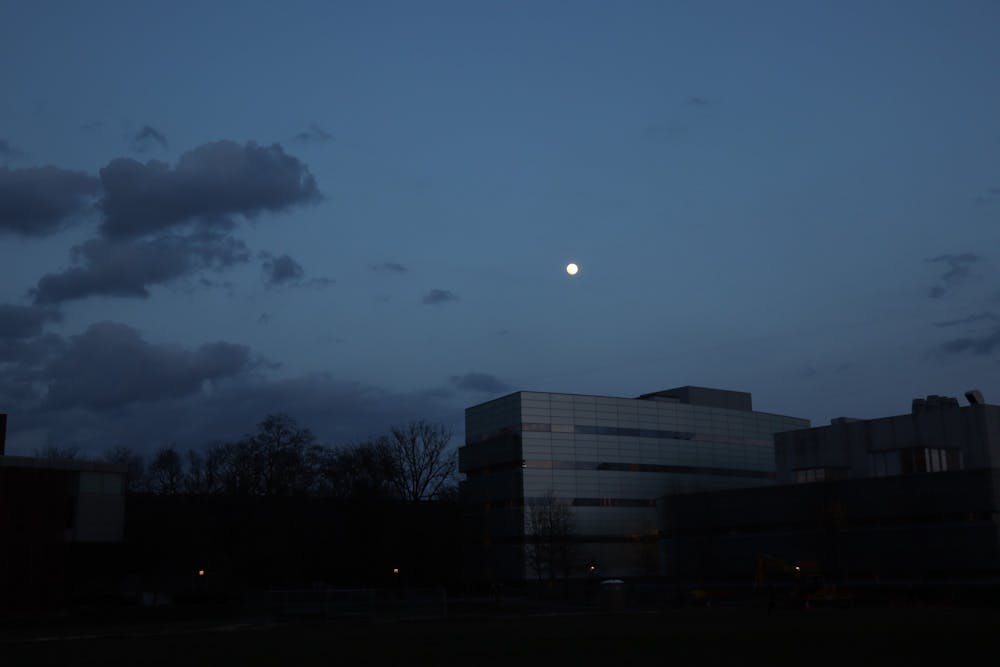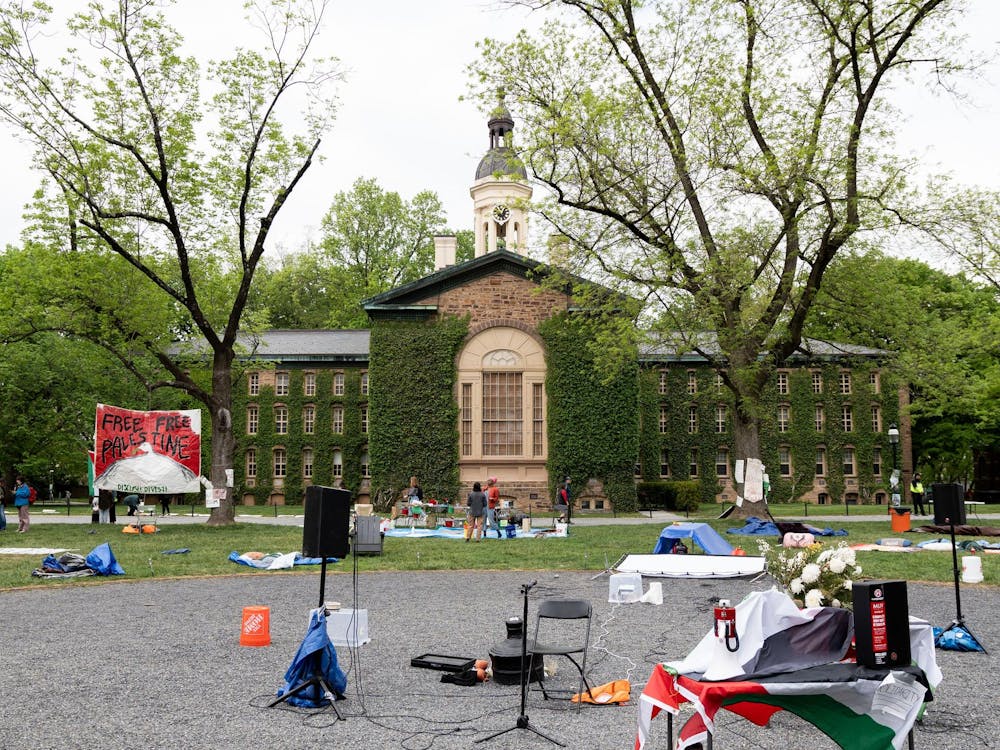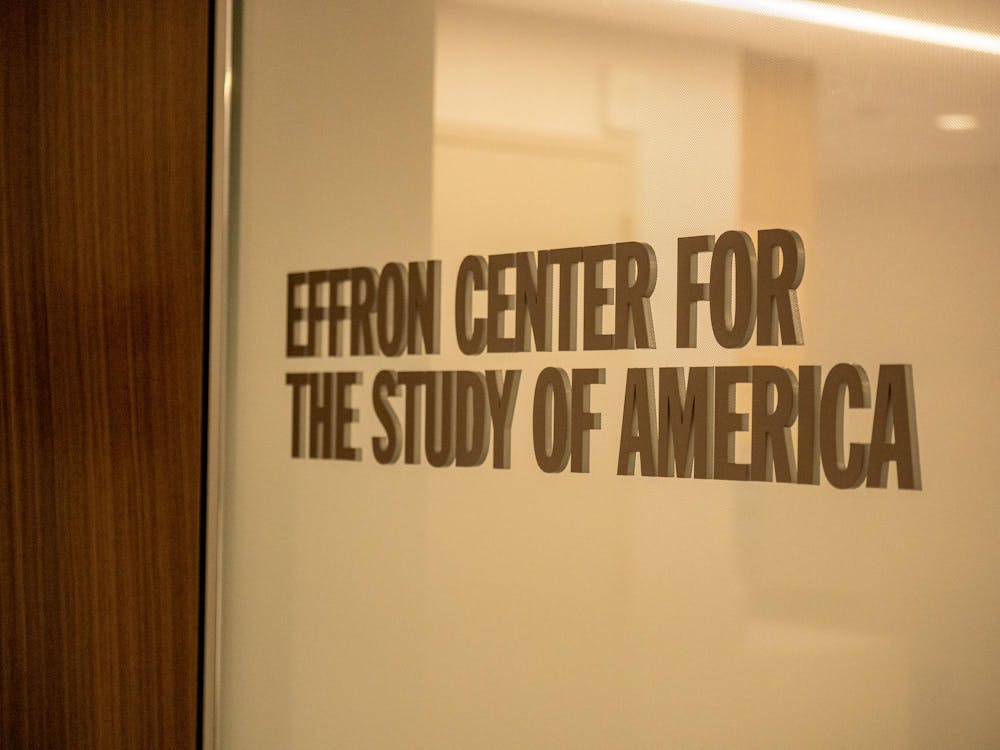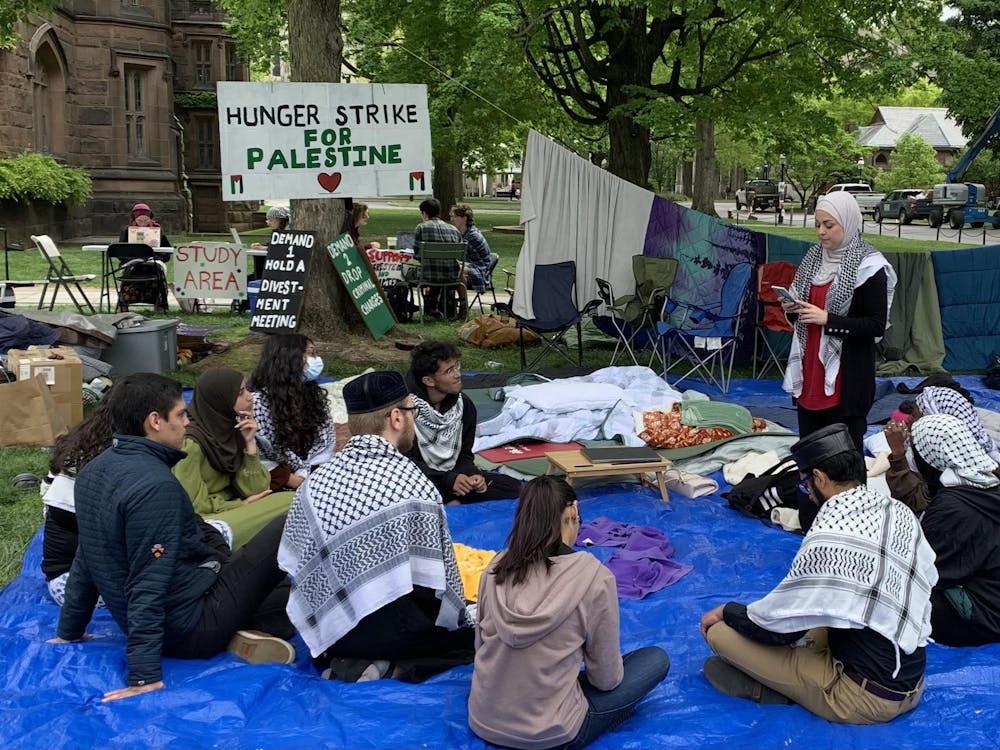Over the past few months, campus has engaged in a debate over whether the high-aspiration environment at Princeton is beneficial to mental health. The debate was prompted after President Christopher L. Eisgruber ’83 said in an interview with the ‘Prince,’ “I think high aspiration environments, and that includes academically rigorous environments, are fully consistent with and helpful to mental health.” While students and administrators have weighed in, faculty members set academic standards that some of the questions are empirically verifiable. The Daily Princetonian spoke with two professors about mental health and its connection to academic rigor.
Professor Sam Trejo of the Sociology department researches education and health. He particularly focuses on their intersection, studying genetic data and risk, and using quasi-experimental methods to study how and if one causes another.
Psychology professor Erik Nook is an associate faculty of Princeton Neuroscience Institute, where he directs the Logic of Emotion lab. Professor Nook leads a research team that examines language and managing emotions. He teaches a psychotherapy class at Princeton and is the only professor at Princeton who is also a certified clinical psychologist.
Trejo’s research focuses on the impact of traumatic events on students — specifically focusing on the impact of school shootings. The Princeton community is no stranger to tragedies — according to a recent ‘Prince’ study, over 19 percent of campus suicides since 1876 occurred in the past ten years. Spillover effects have been observed based on exposure to suicide. The National Institute of Health has reported increased suicide rates among adolescents following exposure to suicide.
The professors discussed the specific impacts of highly-selective institutions. Many studies have shown that students at high-achieving institutions are at higher risk for mental health crises. Trejo explained that anecdotally, he finds Princeton students strive towards higher expectations which are often set by themselves. “There was an anonymity I liked at Texas,” he said, referring to his own alma mater.
When reflecting on his own time in college, Nook reminisced that it was very difficult to be struggling in areas that used to be easy for him.
Trejo warned against jumping to causation from correlation when it comes to academic rigor and mental health. The two are “hard to separate” — the average Princeton student does quite well, but “Princeton may just attract students who want that,” Trejo explained.
Nook expressed that “in a very rigorous environment surrounded by very competent people, it is normal to engage in comparison” but we are “never going to be as excellent as everyone around us.”
He continued that he thinks people are excited to come to Princeton to learn, grow, and acquire new skills, and being surrounded by professors and smart peers is pertinent to that mission. Therefore, the University should remain committed to the notion of rigor. However, he believes in “expanding [this notion] to help students learn skills” like navigating identity, understanding how to live a rich life, and connecting and enjoying.
Nook explained that in clinical work, there is dialectical behavioral therapy — an approach acknowledging that life often exists with opposites going together. Managing imperfection, reaching one’s limits, and managing failure are therefore necessary components of growth and stress inoculation.
In the classroom, Trejo “tries to be lenient.” He believes it is good to have a policy allowing one or two mistakes and always grants extensions to students who need them as he “doesn’t feel students are being manipulative or dishonest.”
Nook told the ‘Prince’ that he has “extraordinarily firm deadlines.” He “assumes everyone is coping with stresses left, right, and center” and that “there is a distribution of intensity of those challenges and how people handle them.” His way of working with that is making his expectations very clear so students know exactly what they are signing up for.

Nook emphasized the support that is available to students struggling with stress. “Hopelessness and loneliness are very difficult feelings for folks to handle and there are many resources.”
Abby Leibowitz is a staff News writer for the ‘Prince.’
Please send any corrections to corrections[at]dailyprincetonian.com.









